Sewer Pipe Comparison: Which Material Suits Your Home Best?
Sewer Pipe Comparison: Which Material Suits Your Home Best?
Different types of sewer pipes can determine how well a home’s drains function. A single bad decision can result in leaks, clogs or replacing plumbing parts early, making the repairs very expensive for those homeowners. Since PVC, cast iron and polypropylene sewer pipes have separate benefits, your decision will depend on the type of task at hand. Using professional experience, this article will explain these materials and guide you in picking the right sewer pipe for your home.
Factors Influencing Pipe Selection
Each installation of sewer pipes in Canada must be made from a material that matches the environment, the home’s budget and special conditions. Install tubing in homes from rural areas to cities, using PVC, cast iron and polypropylene. If you're unsure which sewer pipe material suits your situation, consulting plumbing contractors Superior Plumbing & Heating can help ensure your choice aligns with your needs and local codes. You should know how every type of material matches the pipe’s durability, how easy it is to install, and the price.
Key Features of Sewer Pipe Materials
Here’s a detailed sewer pipe materials comparison based on fieldwork:
- PVC pipes: Lightweight and rust-proof, PVC sewer pipes are budget-friendly and simple to install. They’re great for home drainage but can crack in freezing temperatures.
- Cast iron pipes: Built for longevity, cast iron sewer pipes are sturdy and reduce drain noise. They’re costlier and heavier but ideal for demanding systems.
- Polypropylene pipes: Polypropylene sewer pipes are flexible, durable, and resistant to chemicals and heat. They’re less common but perfect for harsh conditions.
- Material trade-offs: PVC offers affordability, cast iron excels in strength, and polypropylene handles extreme environments well.
Longevity and Upkeep Requirements
When it comes to sewer pipe durability, each material has its strengths. PVC can last 50–70 years, but may crack under heavy soil pressure. Plumbers have seen cast iron pipes in century-old homes still holding strong, though rust is a concern without proper care. Polypropylene typically lasts 40–60 years, resisting corrosion even in tough conditions. For sewer pipe maintenance, PVC requires occasional checks for blockages. Cast iron needs regular rust inspections, especially at joints. Polypropylene demands minimal upkeep but benefits from secure fittings to avoid leaks.
Weighing PVC Against Cast Iron
The debate of PVC vs cast iron pipes comes up often in plumbers work. PVC is cheaper, lighter, and faster to install, making it a favourite for new homes on a budget. However, it’s noisier and less robust under physical stress. Though expensive and labour-intensive, cast iron offers superior strength and quiet drainage, perfect for apartments or commercial buildings. Polypropylene is a specialized option, ideal when flexibility or chemical resistance is needed. PVC is often chosen for simple residential projects, while cast iron is more common in heavy-duty applications.
Best Uses and Installation Tips
Each material shines in specific scenarios for sewer pipe installation in Canada:
- PVC use cases: Choose PVC for residential sewer lines due to its low cost and ease of handling. Careful bedding is needed to prevent stress fractures.
- Cast iron use cases: Cast iron’s durability and sound-dampening make it a top pick for multi-story buildings or older homes. It requires strong support due to its weight.
- Polypropylene use cases: Use polypropylene in systems exposed to hot water or corrosive substances, like labs or industrial homes. Its flexibility simplifies tricky layouts.
- Installation advice: Maintain a 1–2% slope for proper drainage, use high-quality connectors, and confirm local codes allow the chosen material.
Installation Challenges to Anticipate
Sewer pipe installation has its hurdles. In Canada’s cold climate, PVC can become brittle if not buried below the frost line. Cast iron’s weight complicates handling, requiring extra labour or equipment. Polypropylene’s specialized fittings can be hard to source, increasing costs. Always check soil type and pipe depth to prevent shifting or freezing damage. Proper bedding, like gravel or sand, is crucial for stability. Local regulations often specify approved materials, so verify these before starting any project.
Keeping Pipes in Top Shape
Effective sewer pipe maintenance prevents costly repairs. Regular inspections help spot cracks, corrosion, or leaks early. For PVC, a drain snake or high-pressure water jetting clears blockages. Cast iron benefits from rust-proof coatings at joints, especially in damp basements. Polypropylene needs occasional fitting checks to ensure tightness. Avoid flushing items like wipes or grease, which clog any pipe type. Scale buildup is a risk in Canada’s hard water areas, so a water softener can help keep pipes clear.
When to Hire Experts
Dealing with smaller clogs is up to you, but hiring a pro is best when there’s a big issue. When handling cast iron repairs, you will need big, heavy tools for cutting and joining. When pipes keep clogging or start to leak, a pro may use a camera to see if there are root or structural problems. Expert technicians ensure that your workflow follows Canadian codes to avoid violations and risks of injury. Working with a professional plumber makes plumbing problems less costly and easier to manage over time.
Final Advice
The choice of sewer pipe—PVC, cast iron or polypropylene—is based on cost, durability and the project’s needs. Excellent for those on a budget, PVC suits homes, cast iron relieves the stress of busy systems and polypropylene is made for facing odd challenges. These types of sewer pipes are built to last for years if their installation and upkeep are proper. Choosing a good piping system means a home’s plumbing will likely work fine and do its job smoothly.
By
Monika
More Services
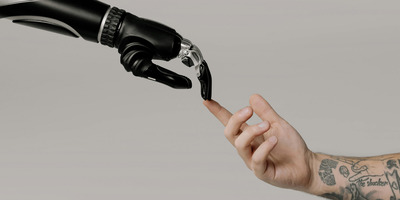
AI vs Traditional Programming: How to Choose the Best Approach
Software development has long relied on deterministic rules, while AI uses data-driven, probabilistic decision-making. Choosing the right approach is key for complex systems. This article discusses the differences between AI and traditional programming and when to use each.
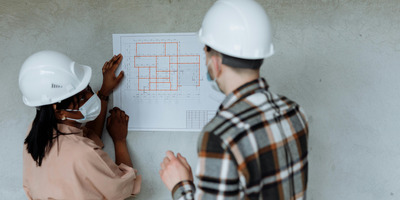
How to Evaluate Service Providers for Quality, Reliability, and Value
Every year, many Canadians face contractor issues like botched renovations, hidden fees, or no-shows. With polished branding and fake reviews, choosing reliable providers is tricky. This article explains how to evaluate service providers for quality, reliability, and value.

Choosing A Data Room Without Regretting It Later
Choosing a virtual data room (VDR) affects how organizations manage and protect sensitive information. The right setup streamlines collaboration in M&A, fundraising, audits, and governance, while poor choices risk security issues. This guide outlines key VDR models, features, and controls.
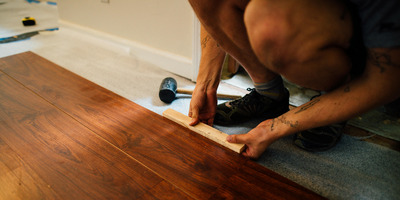
Avoid These 10 Floor Renovation Slip-Ups
Refinishing your floors can transform your home, but it’s easy to make costly mistakes. Whether you’re remodeling one room or the whole house, knowing what not to do saves time and money. In this article, we cover the most common floor renovation slip-ups and how to avoid them.

Flagstone Landscaping: Benefits, Installation Tips, and Maintenance Guide
In this article, we explore flagstone as a durable, natural material ideal for walkways, patios, and garden paths. Flagstone resists shifting, heavy impact, and harsh weather, offering long-lasting strength and aesthetic appeal for outdoor landscaping projects.

Understanding Bail in Canada: A Guide to the Process
Being arrested in Canada can be confusing, with the bail hearing being a crucial step. Bail determines if an individual stays in jail or returns to society while awaiting trial. Understanding bail laws often requires an experienced lawyer to build a case and ensure proper representation.
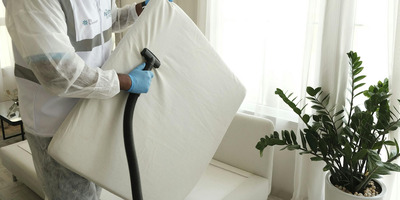
The Heat Solution as an Effective Bed Bug Treatment
Bed bugs disrupt sleep and cause anxiety. Heat treatment, a popular and effective pest control method in Canada, raises temperatures to eliminate bed bugs at all stages. Understanding its process, benefits, and limitations helps homeowners choose the best solution for their situation.
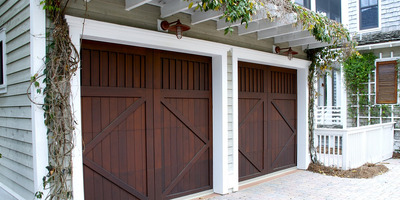
Revamping Your Entryway: Innovative Garage Door Design
Design experts from HGTV assert that a simple garage door renovation can significantly transform your home's exterior. This guide will navigate you through revitalizing your entryway with cutting-edge garage door designs from premier decor websites.